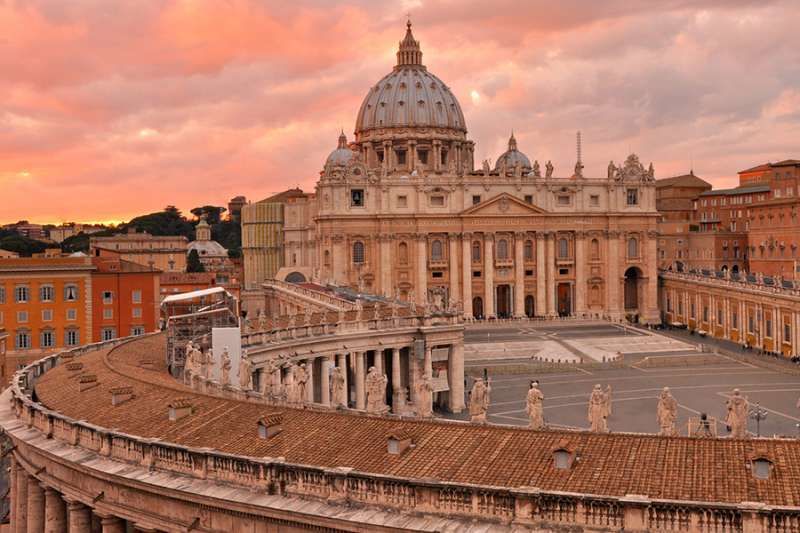The first hearing in a trial against the former president of the Institute of Religious Works (IOR) — known as the “Vatican Bank” — and his lawyer took place today at the Vatican.
Angelo Caloia, 78, president of the IOR from 1989-2009, and his lawyer, Gabriele Liuzzo, 95, were indicted March 5 on accusations of having embezzled money from Vatican real estate sales during the years 2001-2008.
At the hearing May 9, the Vatican Court announced plans to appoint experts who will assess the value of properties that Caloia and Liuzzo are accused of selling at below-market rates — while allegedly making off-paper agreements for higher amounts to pocket the difference. The amount embezzled is estimated to be 57 million euros (68 million dollars).
Caloia was present at the nearly four-hour long hearing, though Liuzzo was absent, citing his age. During the process, the chancellor of the court read the indictment, and preliminary objections and requests for witnesses were assessed, a Vatican communique said.
The trial was initially set to begin March 15 but was postponed “at the request of the attorneys for the indicted and the lawyers of the IOR,” Vatican spokesman Greg Burke said in a statement March 12.
In February the institute announced it had joined a civil suit, in addition to the criminal proceedings, against Caloia and Liuzzo.
Former IOR director general Lelio Scaletti, who died Oct. 15, 2015, was part of the original investigation, which was launched in 2014 after complaints were lodged by the IOR.
The Institute for Religious Works was founded in 1942 under Ven. Pius XII but has origins dating back to 1887. It aims to hold and administer finances designated for “religious works or charity,” its website says. It accepts deposits from legal entities or persons of the Holy See and of the Vatican City State. The main function of the institute is to manage bank accounts for religious orders and Catholic associations.
According to 2016 figures, the bank has about $7 billion in assets from almost 15,000 customers. It has about 100 employees and turned a profit of about $44 million.
The Board of Superintendence governs the bank under a six-member Commission of Cardinals. The commission is supervised by Cardinal Santos Abril y Castelló.
Since his election as Bishop of Rome in 2013, Pope Francis has sought to reform the Vatican Bank and other financial aspects of the Holy See. The process has been complex, with various debates about jurisdiction, oversight, and auditing; establishment of new laws and guidelines; and changes in key personnel and leadership.

